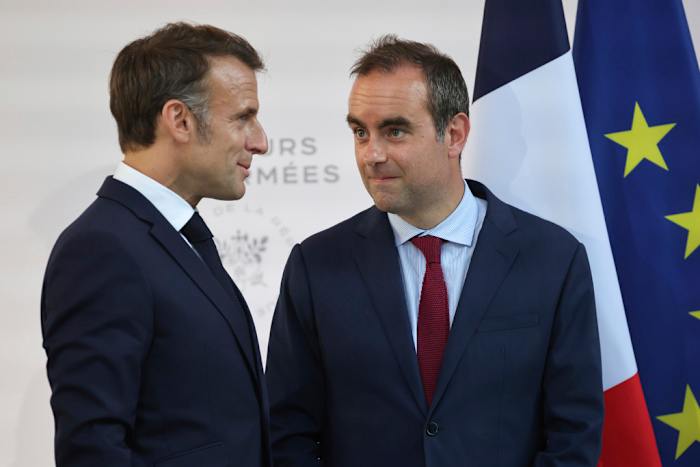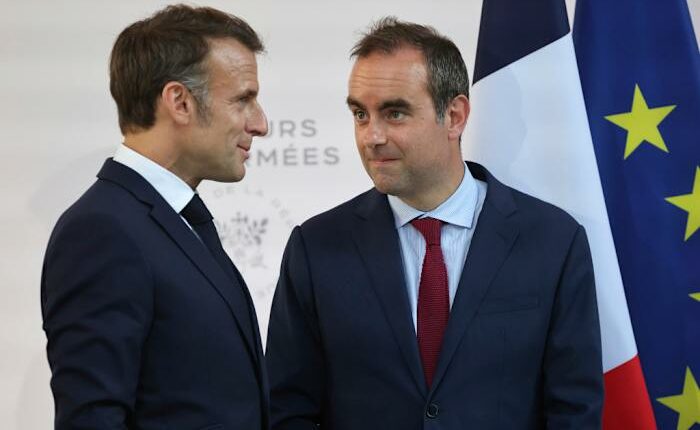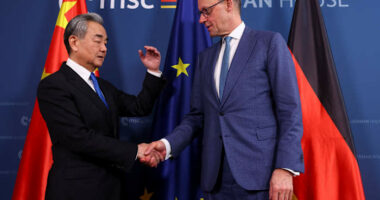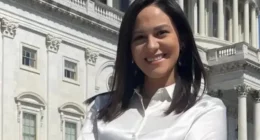Share this @internewscast.com

PARIS – Outgoing French Prime Minister Sébastien Lecornu, intent on easing the political turmoil caused by his resignation on Monday, only a day after revealing his ministers, is confronted with a tight deadline to resolve the impasse induced by his departure by Wednesday.
President Emmanuel Macron, after accepting Lecornu’s resignation, granted him 48 hours to engage in further discussions with political parties, emphasizing the necessity to maintain national stability.
The limited timeframe given to Lecornu allowed Macron some breathing room to weigh his options. However, attention shifted to Macron as speculation arose regarding his potential response to France’s political crisis and strategies to navigate out of the situation.
The unstable alliance between Macron’s centrists and the conservatives disintegrated swiftly following the announcement of Lecornu’s government, leaving parties significantly divided, and he was unable to obtain the parliamentary support required to advance the 2026 budget.
Lecornu extended an invitation to all political factions for discussions, but far-right leaders Marine Le Pen and Jordan Bardella of the National Rally party declined the offer, advocating for early elections instead. On the far left, representatives of France Unbowed also opted to abstain.
The French constitution endows significant powers on the president, who appoints the prime minister. Even when politically weakened, he retains authority over foreign policy, European affairs, and the negotiation and ratification of international treaties. Additionally, the president serves as the commander-in-chief of the armed forces.
Macron, whose approval ratings have sunk to record lows, has not indicated his next move if Lecornu fails. Rivals say his choices are limited to calling new elections, appointing a prime minister from outside his camp or resigning.
Here is a closer look at Macron’s options:
Choosing an outsider for a political cohabitation
Republicans party leader Bruno Retailleau, along with the Socialists, Greens and Communists, have pushed for the inclusion of a prime minister from another party. Retailleau, who withdrew support from the government coalition, said he could join a new cabinet only under such an arrangement.
The left also argues cohabitation is overdue. Their alliance, the New Popular Front, won the most seats in the 2024 French legislative election, though it fell short of a majority and later split amid infighting with Jean-Luc Mélenchon’s France Unbowed.
Under cohabitation, the prime minister governs with the backing of parliament, while the president retains influence mainly over foreign policy, defense and European affairs. France has seen three such periods, most recently from 1997 to 2002, when President Jacques Chirac shared power with Socialist Prime Minister Lionel Jospin.
Calling snap elections
The French president can dissolve the National Assembly and call elections before the end of deputies’ terms. The tool has been used repeatedly under since 1958 to resolve political crises, but it carries risks of deepening divisions.
Macron already tried this path last year after the European elections, when the National Rally surged to a historic win. The move produced a fractured Assembly in which the far right and left now hold more than 320 seats, while centrists and conservatives control 210. That fragmentation has led to chronic instability and a rapid succession of governments.
While unlikely to win an outright majority, the National Rally views a snap election as a golden chance to come to power. Jordan Bardella, the party president, has said he would be ready to work with Republicans MPs in order to secure a majority.
Resignation is possible but unlikely
Macron’s second term is set to end in May 2027 and he has repeatedly said he will not resign. But if his mind changed and he quit, the Constitutional Council would declare a vacancy, the Senate president would assume interim powers and a new presidential election would be held within 35 days.
On the far left, Melenchon’s France Unbowed has asked for Macron’s departure.
More surprisingly, and a sign of Macron’s growing isolation inside his own camp, Édouard Philippe, Macron’s first prime minister after he swept to power in 2017 and once a close ally, has suggested the president should step down and call an early presidential election once the 2026 budget is adopted.
Since 1958 and the inception of the Fifth Republic, only one French president has resigned: Charles De Gaulle after losing a 1969 referendum.
___
Petrequin reported from London.
Copyright 2025 The Associated Press. All rights reserved. This material may not be published, broadcast, rewritten or redistributed without permission.










